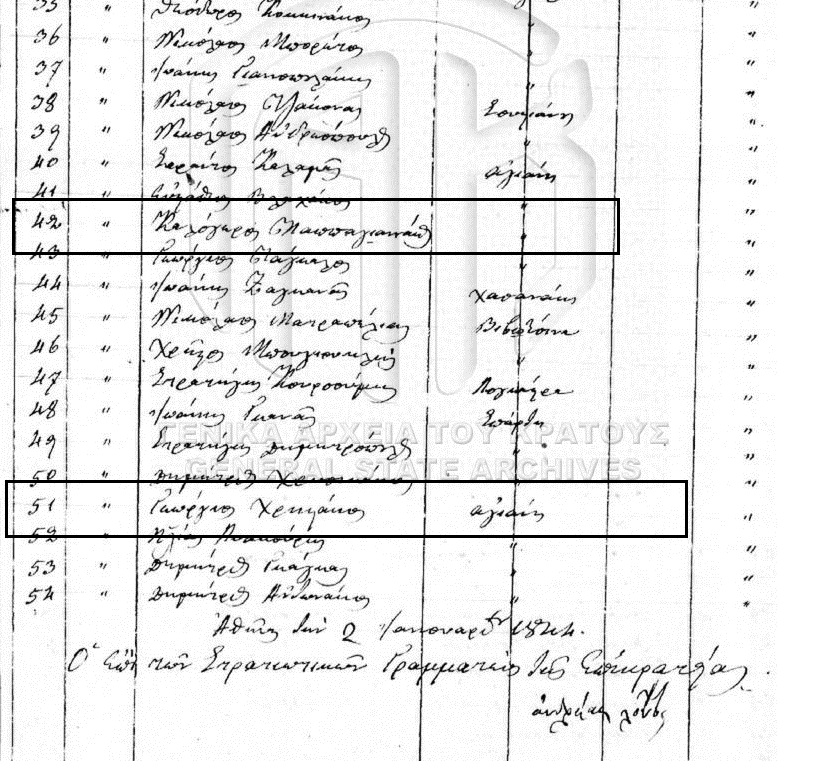The Revolution of 1821, or the Greek War of Independence1, ended 400 years of Ottoman rule and launched the democratic modern Greek state. Although there is not an exact count of the number of men who participated, we do know that the revolutionaries were organized into militias and guerilla groups which were organized at the local level.
Those who fought came from all areas of Greece. They were shepherds and farmers, businessmen and professional men from all walks of life. These men were our ancestors. This book by Kostas M. Pitsiou is one example of an author’s attempt to document the fighters from Lakonia. It was published in Athens in 1971; most likely it can be found in Greece at libraries or bookstores that carry out-of-print books.
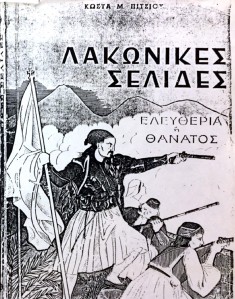
Fighters who exhibited excellence in service were elible to receive an award (see this post for details). There were three levels:
1st: silver medal — αργυρό μετάλιο
2nd: bronze medal — χάλκινο μετάλιο
3rd: iron medal — σιδήρου μετάλλιο
The names of men who received an Aristeia Award for their service are preserved in many thousands of files held by the Greek government in Archives and the National Library. It is a daunting task for researchers to access these files and categorize their holdings. However, there is an online database with some Aristeia Award files that have been digitized. This database can be accessed at: https://1821.digitalarchive.gr/archive.2
A step-by-step guide on searching this 1821 Digital Archive follows.
- Go to the website: https://1821.digitalarchive.gr/archive.
- On the left side of the page, click on “Advanced Search.”
- Check the box, “Documents,” and uncheck the boxes for Art, Songs, Books.
- In the search box, type a surname in Greek. NOTE: The name must be spelled correctly or the search will yield no results. Example: the surname of Gritis–if spelled Γρίτις, there are no matches. It must have the correct spelling of Γρίτης.

- Click on the magnifying glass icon to start the search.
- If there is a result, the name will be in red on the right side.

- Click on the name in red to open the file.
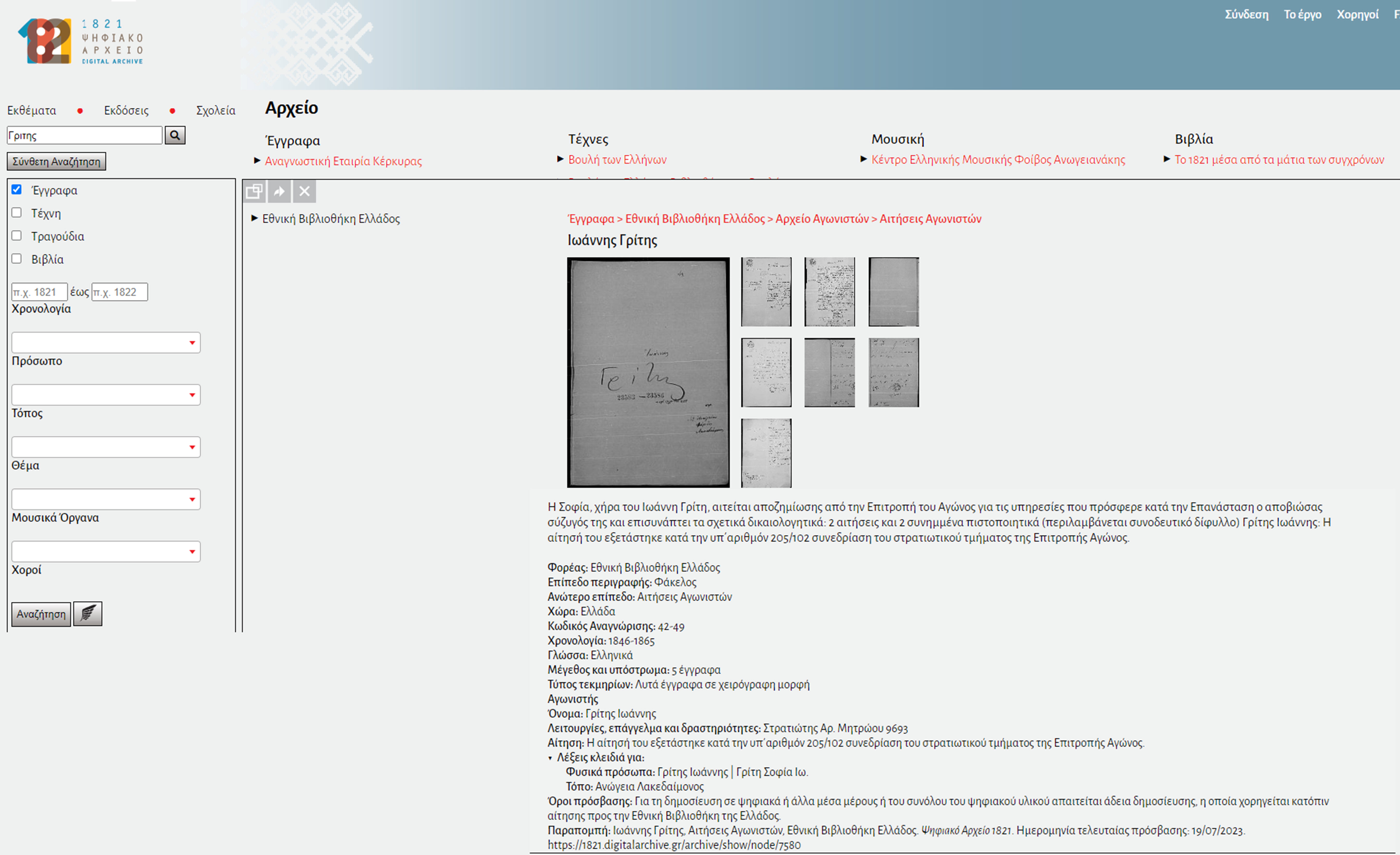
- Use an onlineTranslate extension to copy the description in English (I have Google Translate installed as a browser extension; I also use DeepL).
- Look carefully at the description. A synopsis of the file is at the top. Towards the bottom, you will see the word “Place”. This is critically important, as it gives the residence of the fighter so you can correctly identify if this person is the one of interest.
- The very last line of the description gives a URL. This is the URL to this exact page. For Ioannis Gritis, the URL is: https://1821.digitalarchive.gr/archive/show/node/7580. Be sure to capture this in your notes.

- In a search on the surname of Zarafonitis / Ζαραφωνίτης, there are three results. I cannot assume that all three are people of interest to me. I must pull up each file and read the Description, then look at the Place, to determine if any of these are from my area.
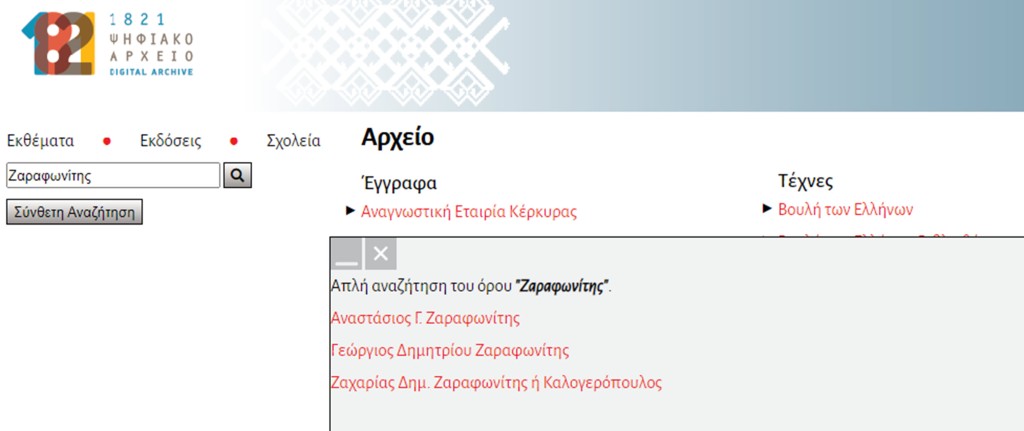
Anastasios Zarafonitis is from Hydra – no
Georgios Dimitrios Zarafonitis is from Sklavochori (Amykes) – this is mine!
Zacharias Dim. Zarafonitis or Kalogeropoulos is from Kranidi – no
- SEARCH BY VILLAGE: Another option in the “search” box is to type the name of a village, not a surname. If there are files for people from that village, they will appear in the results.
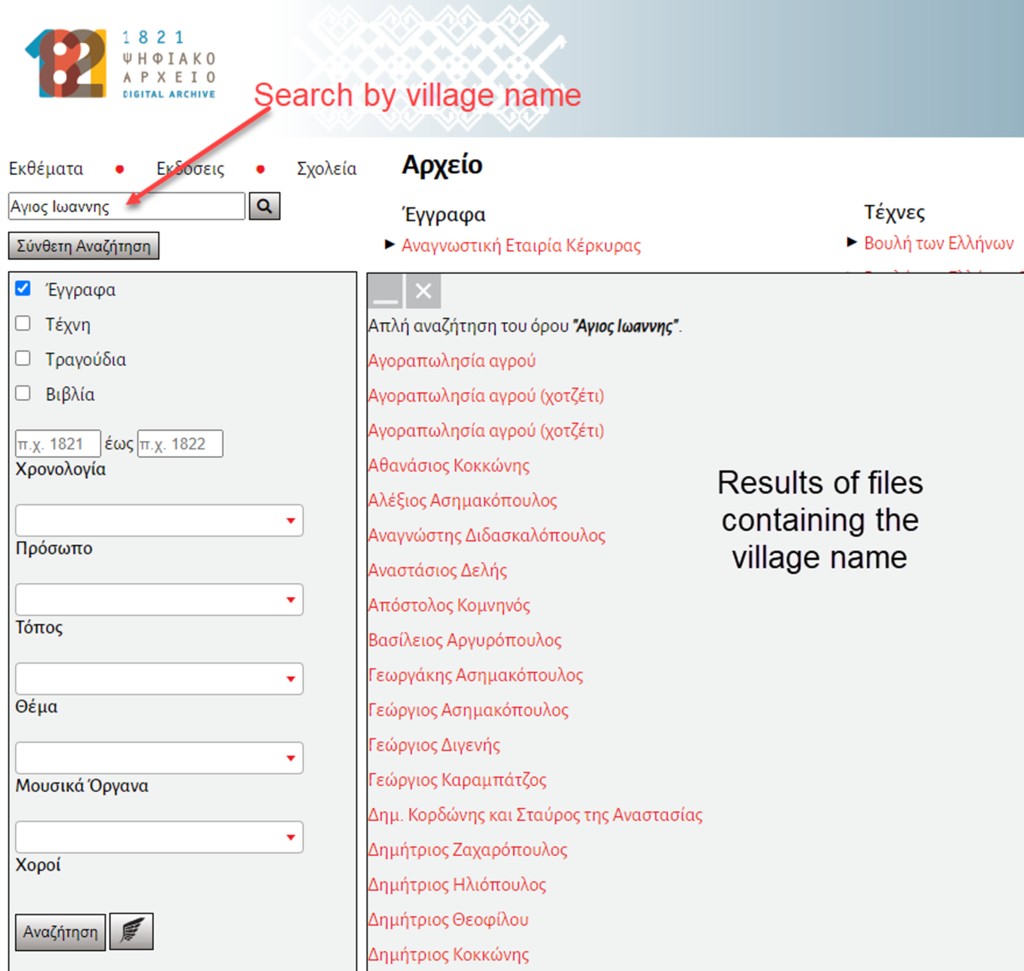
When you find a file of interest, you must download the images. The URL at the top of the page will not take you back to this exact page.
In summary:
- The files on this website are strictly for men who received an Aristeia Award. Not everyone who fought received an award.
- Only some files are digitized. If you do not find a name, do not assume the person does not have a file.
- Files can be accessed at the National Library, but you must have a researcher’s card and make an appointment to view the files. You must know the exact name and file number of the revolutionary to access his paper file.
- Remember to download all images. Translate and copy the Description and keep it in the folder with your images.
- If you know that a revolutionary received an Aristeia Award, keep checking the website. Hopefully the file you are seeking will eventually be digitized.
1Wikipedia, Greek War of Independence. An online search yields hundreds of articles and books on this subject.
2Many thanks to Gregory Kontos of Greek Ancestry for finding and sharing this link.



